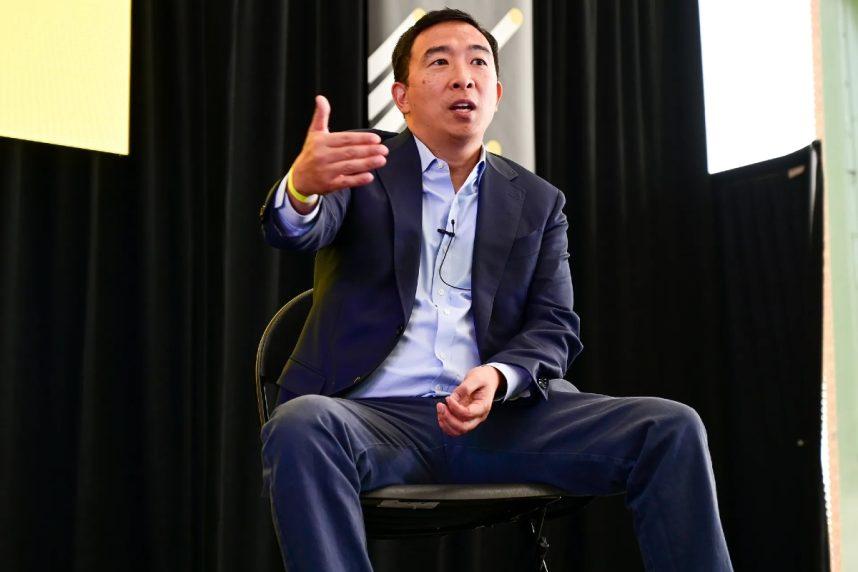Published on: November 26, 2024, 12:31h.
Last updated on: November 26, 2024, 12:31h.
Andrew Yang, a 2020 Democratic presidential candidate known for advocating a $1K monthly basic income subsidy for all U.S. citizens, believes the widespread legalization of sports betting has had negative impacts on society.

As a businessman, attorney, lobbyist, and political commentator, Yang views the national trend of legal sports betting, enabled by a significant U.S. Supreme Court decision in May 2018, as harmful.
He argues that the most vulnerable individuals, those unable to sustain financial losses, have been disproportionately affected. Yang compares sportsbooks to a modern version of lotteries, targeting those with limited resources.
You know what’s become another ‘tax’ on Americans? Online sports betting,” Yang said on X.
Responding to criticism from his 1.7 million X followers, Yang clarified that he has engaged in legal sports betting activities.
Guys, I gamble on sports on one of the apps. It’s a time suck and totally changes your viewing experience — and not for the better,” Yang continued. “It’s incredibly easy to imagine people betting money that they can ill afford.”
Despite his concerns about sports betting, Yang has shown support for legal online poker. A native of New York, he also advocates for the introduction of full-scale casinos in New York City.
Tax on the Poor?
Lotteries have often been described as a regressive tax, where lower-income earners bear the brunt of the financial burden.
According to a report from The Economist, individuals with lower incomes spend significantly more on lottery games compared to wealthier individuals. Analysis of state lottery data alongside U.S. Census Bureau statistics revealed that in the poorest 1% of zip codes, the average adult spends approximately $600 annually, nearly 5% of their income, on lotteries.
“In other words, the poorest households spend roughly 30 times more on lotteries than wealthier ones, in terms of income percentage. The recent pandemic exacerbated this trend. In 2021, the poorest 1% of households, bolstered by stimulus funds, increased their lottery spending by approximately $100 compared to 2019. In contrast, the richest 1% only spent an additional $10,” as the report indicated.
Americans collectively spent over $100 billion on state-run lottery games last year, positioning the U.S. lottery industry as the ninth most profitable entity in the country, if it were a single enterprise.
Although most of the nearly 40 states permitting sports betting do not directly engage in wagering or act as the house, these states have benefited financially from the expansion of gambling activities. Following the landmark SCOTUS ruling, state tax revenues from sports betting have exceeded $6.8 billion.
Yang Gang
In the 2020 presidential race, Yang made a notable bid for the Democratic Party’s nomination.
Key supporters during his campaign included Elon Musk, Jack Dorsey, and Sam Altman. Notable endorsements from the Vegas community included Tony Hsieh, Daniel Negreanu, and Penn Jillette.
Yang qualified for and participated in the initial seven Democratic primary debates before ending his campaign in Feb. 2020. His odds of winning the 2028 election are approximately 125/1.


